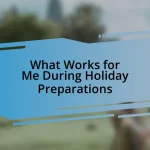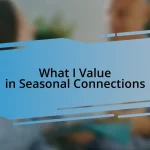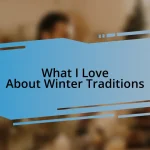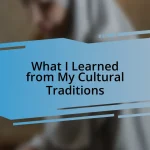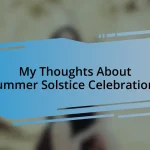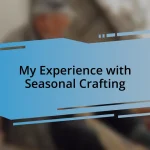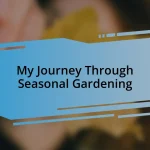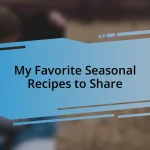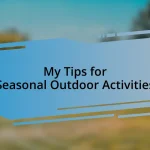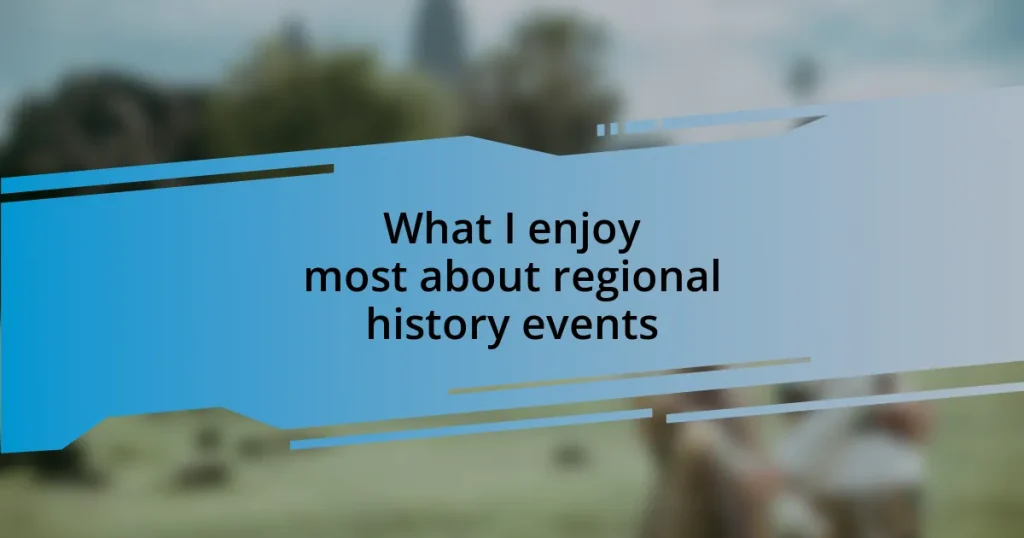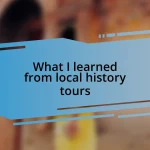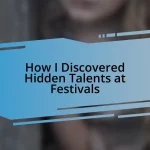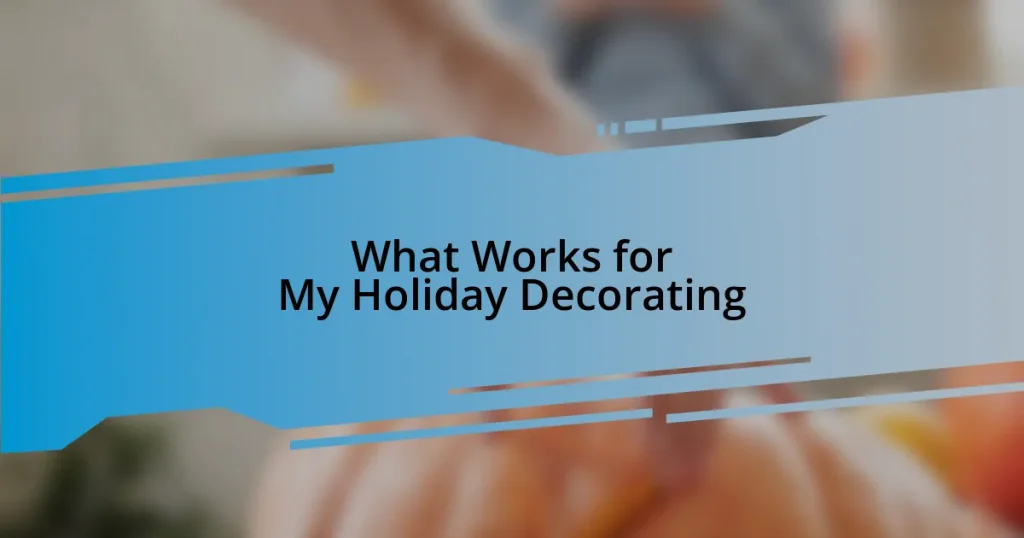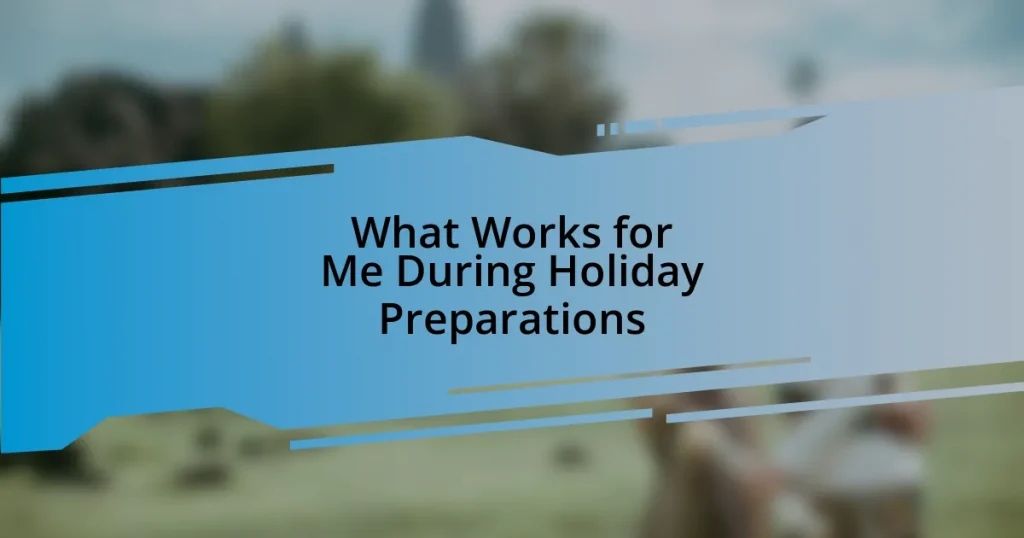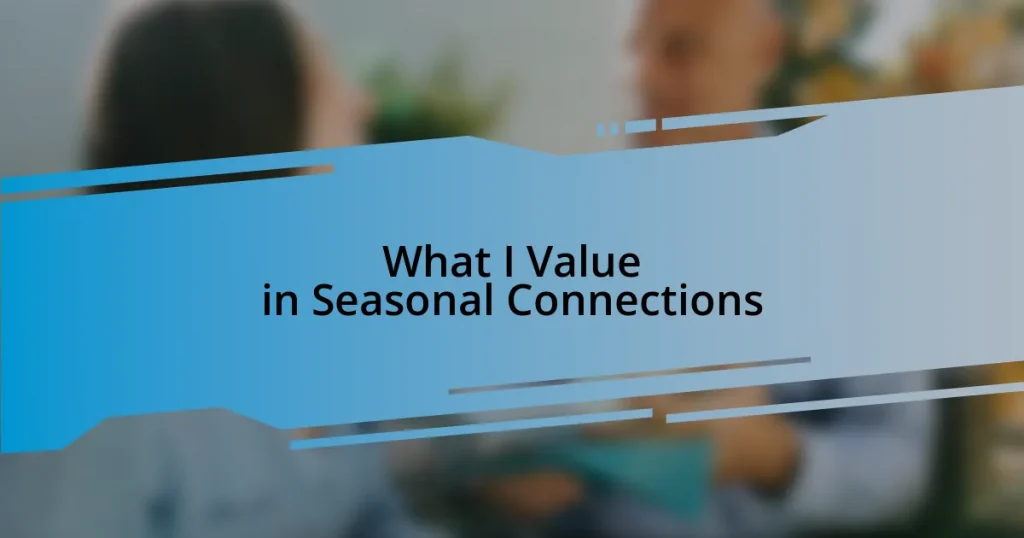Key takeaways:
- Regional history events act as a bridge to the past, connecting communities and fostering a shared cultural identity through storytelling.
- These events create opportunities for new friendships and emotional bonds, enhancing community building through shared experiences.
- Learning from local experts during these gatherings enriches understanding of history, blending facts with personal narratives and emotional depth.
- Engaging activities for all ages make history accessible and enjoyable, preserving traditions and encouraging intergenerational connections.
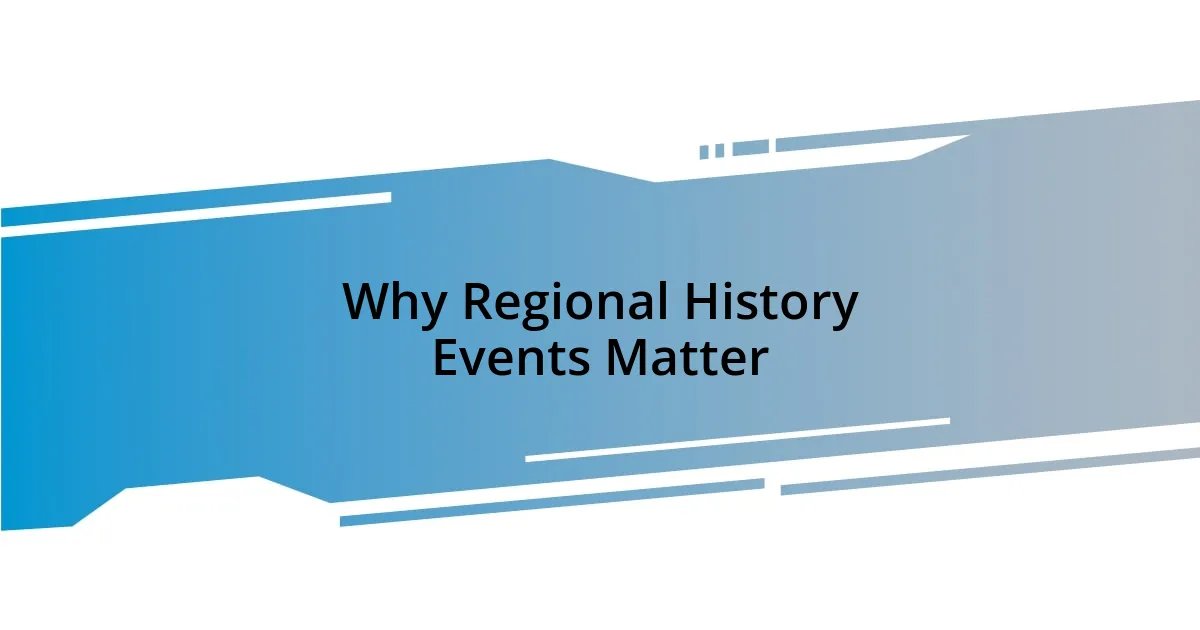
Why Regional History Events Matter
Regional history events hold immense significance as they serve as a bridge connecting us to our past. When I attend such gatherings, I can feel the stories of my ancestors weaving through the tales shared—it’s like stepping into a time capsule. Have you ever felt that electric charge in the air when someone recounts a significant local event? It’s that shared emotional resonance that can unite a community.
Moreover, these events offer a unique perspective on cultural identity. Each story told, be it of triumph or hardship, adds layers to my understanding of who I am and where I come from. I remember attending a festival celebrating local labor movements, and hearing the passionate accounts of struggles for workers’ rights—it struck me how those events crafted our current social fabric. How can we truly appreciate our freedoms without understanding the sacrifices made by those before us?
Additionally, regional history events foster connections among people. They bring together individuals who might not otherwise meet, sparking conversations and relationships. I once shared a delicious meal with strangers at a historical reenactment, and by the end, we were swapping family histories and local legends. Isn’t it fascinating how history can create new friendships? These interactions are quite simply the heart of community building.
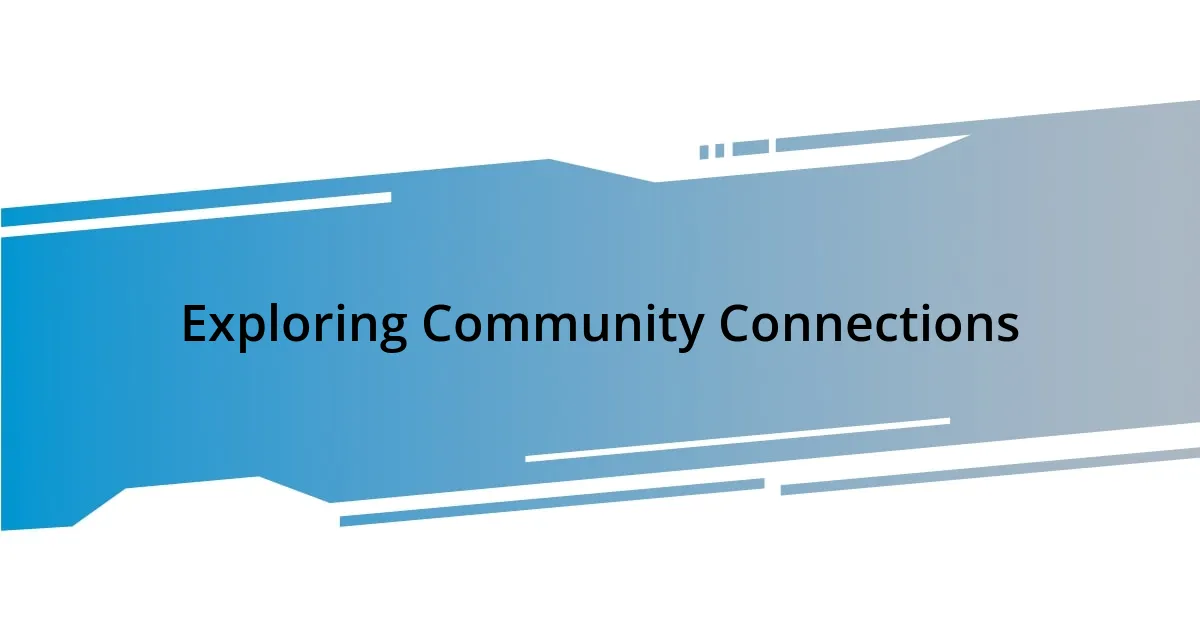
Exploring Community Connections
Regional history events truly reveal the fabric of our communities. When I participated in a local heritage fair, I was astonished by how the stories of different families interwove, revealing shared experiences and common struggles. The laughter, the tears, and the pride in each person’s voice made it clear that our pasts are not isolated—they resonate with one another, creating an intricate tapestry of connection.
- Shared Stories: Each narrative exchanged holds a piece of history, reminding us of our collective identity.
- Emotional Bonds: Listening to a neighbor recount their immigrant experience sparked a deep appreciation for resilience and hope.
- Diverse Interactions: Engaging with others at these events fosters new friendships, often resulting in a rich exchange of cultural traditions and values.
One memorable afternoon, I found myself conversing with a lady who had lived through the civil rights movement in our town. Her stories felt like windows into our past, shedding light on struggles that shaped our community’s values. I didn’t just hear her experiences; I felt them—a poignant reminder of how history breathes life into our present connections.
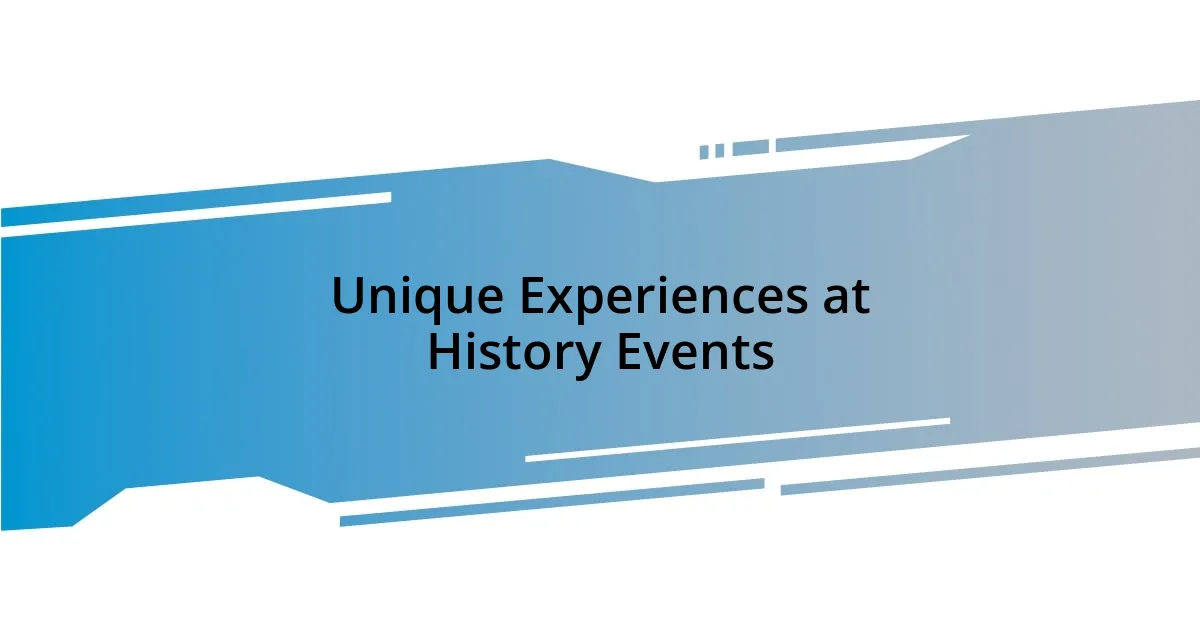
Unique Experiences at History Events
Even the simplest regional history events can offer astonishingly unique experiences. I recall an afternoon spent at a local reenactment where townsfolk dressed as characters from our city’s founding days. The air was alive with the sounds of laughter, and at one point, I found myself in a lively debate with a participant about the impact of an old trade route. It was a surreal moment—arguing history like it was yesterday, all while surrounded by people who share this place I call home. Have you ever found yourself immersed so deeply in a conversation that it felt like you were part of the story being told?
Unique hands-on experiences also add to these events’ charm. I remember attending a period-themed workshop where we could try our hand at traditional crafts. The smell of fresh clay, as I shaped a simple pot, transported me to an era where each object held profound significance in daily life. Engaging in these activities goes beyond just observing; it fosters a tangible connection with history that leaves lasting memories. Isn’t it fascinating how creating something with our hands can bridge the gap between the past and present?
Additionally, the way stories come alive at these events is unforgettable. During a local history symposium, I found myself captivated by a speaker who vividly recounted his ancestor’s journey to this region. The excitement in his voice, combined with the details he shared, made it feel like I was right there alongside them. I realized that it’s moments like these—a shared breath of history—that invite us to reflect on our own stories. How has your family’s journey shaped your sense of identity and belonging?
| Unique Experiences | Description |
|---|---|
| Immersive Reenactments | Engaging in debates and conversations that feel like stepping back in time. |
| Hands-On Activities | Creating traditional crafts that connect us to our heritage. |
| Vivid Storytelling | Experiencing emotional accounts from speakers who breathe life into historical narratives. |
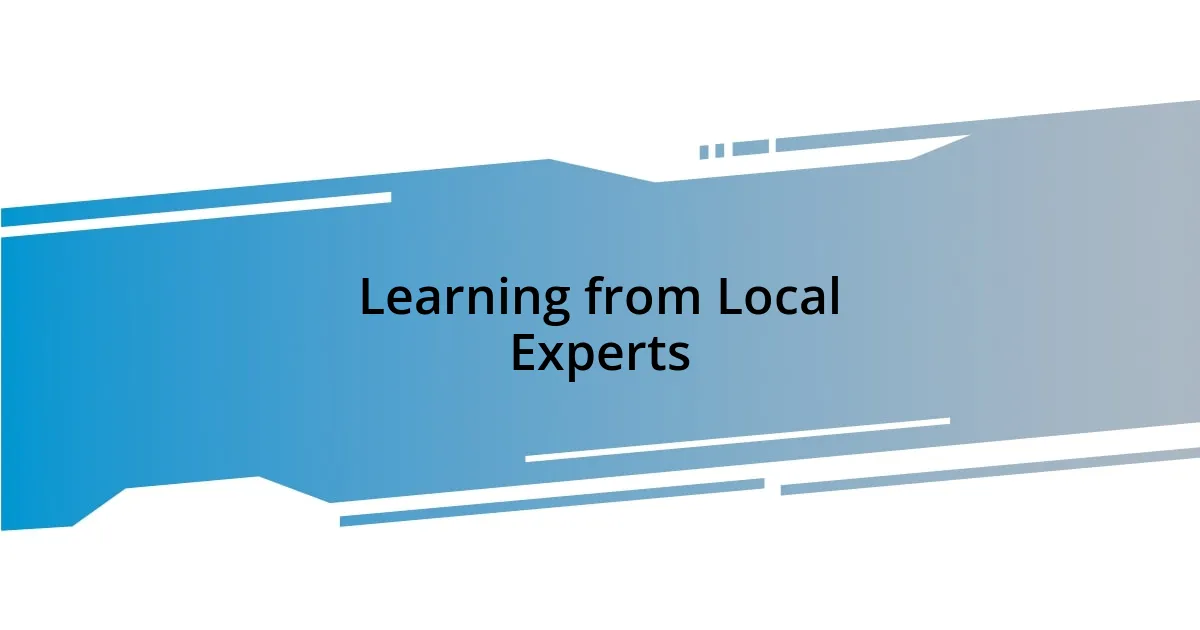
Learning from Local Experts
Participating in regional history events offers the unique opportunity to learn directly from local experts who are often passionate about their narratives. I vividly recall a local historian guiding us through a walking tour of our town. As he shared insights and little-known facts, I felt an exhilarating sense of discovery—the kind that ignites curiosity and inspires deeper exploration. Have you ever had that feeling when a seemingly mundane location transforms into a vibrant story through someone else’s perspective?
What strikes me is how local experts often weave personal anecdotes into their teachings. During another event, a farmer shared stories of his family’s land that had been in their possession for generations. His tales weren’t just about crops but about the labor, love, and loss that went into nurturing that soil. Listening to him reminded me that history isn’t just facts; it’s deeply human, comprised of emotions, sacrifices, and milestones.
Moreover, engaging with these experts creates a ripple effect in our understanding of history. I once attended a roundtable where a local author discussed the ethical dilemmas faced by historical figures in our area. We debated these decisions, and it struck me how their choices resonate with our own societal dilemmas today. As I walked away, I pondered: How are we shaping our own narratives, and what lessons can we draw from those who came before us?
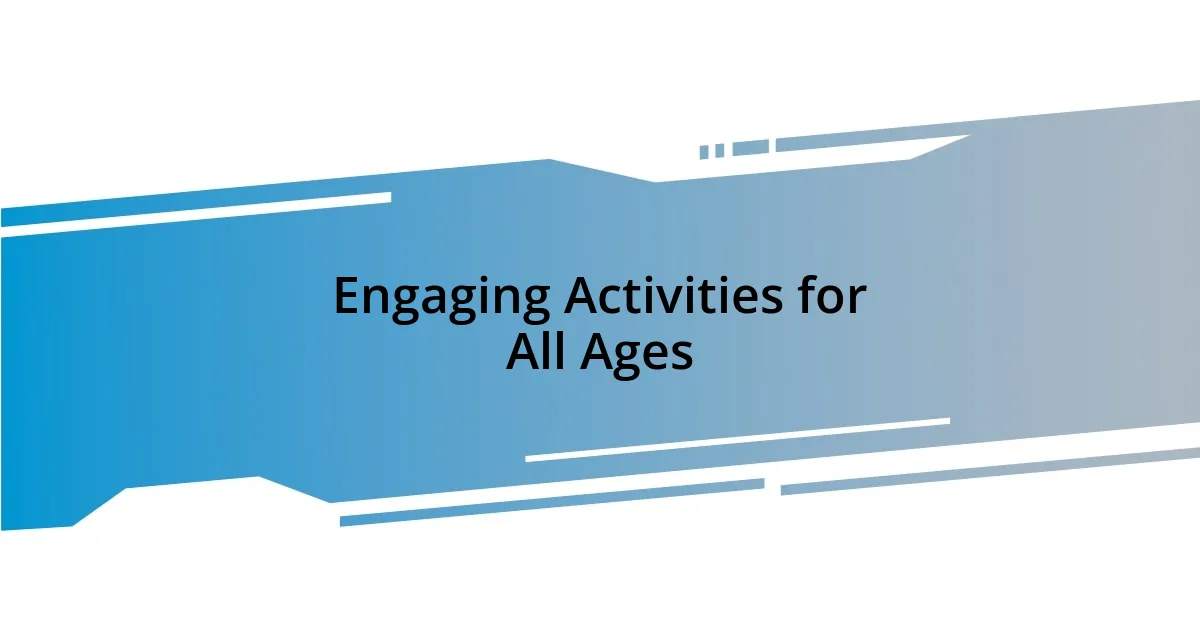
Engaging Activities for All Ages
Engaging activities at regional history events cater to individuals of all ages, intertwining learning with enjoyment. I remember attending a local festival where kids and adults alike could try their skills at archery, a nod to historical practices. Watching the excitement on the children’s faces, as they carefully aimed their arrows, ignited a sense of nostalgia in me—didn’t we all have that dream of being a brave warrior at some point?
Interactivity is a key aspect that makes history come alive. I once participated in a scavenger hunt designed for families, between various booths that illustrated significant historical moments in our community. Each clue directed us to the next marker, and my heart raced as we raced against other teams. This activity not only sharpened our teamwork but also deepened our appreciation for local history in a way that felt electric. Have you ever learned something new while having fun?
Lastly, performances such as period dances or theatrical presentations draw in spectators of all ages. I can still recall the thrill of watching a traditional dance troupe perform in full costume, blending storytelling with artistry. The energy in the air was contagious, making it easy to forget the passage of time. This vibrant participation emotionally connects us to the culture we’re celebrating. What experiences have made you feel closer to your town’s heritage?
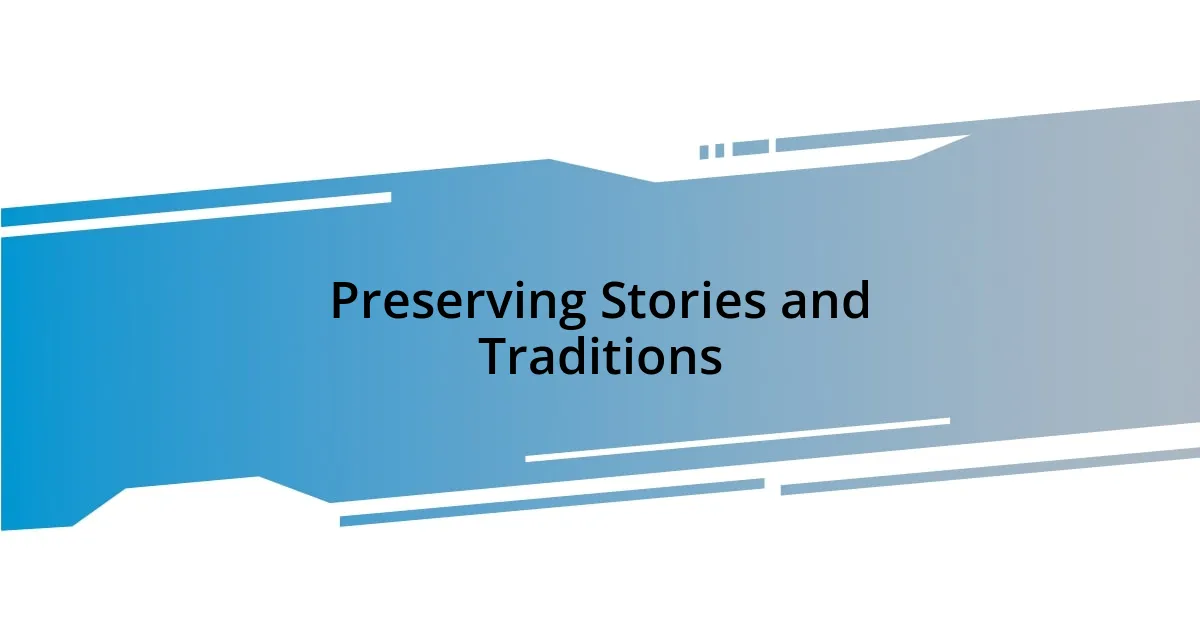
Preserving Stories and Traditions
I’ve often found that regional history events serve as a treasure trove for preserving unique stories and traditions. I remember attending a local gathering where a group of elderly residents shared tales from their youth, recounting how they celebrated holidays in ways that felt both foreign and familiar. Their laughter and nostalgia painted vivid pictures of the past, making me realize how crucial these oral histories are for keeping the spirit of our community alive. Have you ever felt your heart swell with pride when hearing stories that shaped your town’s character?
One particularly memorable experience was during a quilt exhibition, where each blanket represented not just fabric but collective memories stitched together over time. I watched as a woman proudly explained the intricate patterns, each one steeped in family history and cultural significance. I felt a deep connection to her story—it reminded me of the quilts my grandmother used to make. Isn’t it fascinating how something so simple as a quilt can carry generations of tradition within its seams?
Sharing these narratives at regional events doesn’t just preserve history; it breathes life into it. I participated in a storytelling circle where the atmosphere buzzed with anticipation. Each person took turns sharing a piece of their heritage, and the energy was palpable. I walked away feeling inspired and grateful, knowing that these exchanges foster a sense of belonging that can sometimes fade in our fast-paced world. How powerful is it to know that by sharing our stories, we keep our culture alive for future generations?


